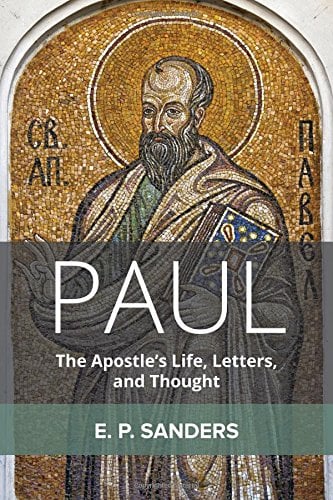Sanders gives a detailed analysis of the three conversion stories in Acts on pp. 94-97 and argues that what accounts for Luke’s insistence of Paul doing things in Jerusalem soon after his conversion is Luke’s Jerusalem-centric character of Luke-Acts. [This argument however doesn’t work very well for Acts since in Acts the orientation is from Jerusalem to the world.] Sanders may be partially right that the reason Luke says the Jews were after Paul in Damascus rather than Aretas is because the Jews are always the opponents in Acts and Luke wants to clear the Roman authorities of opposition to the Way.
p. 98—“Ancient authors were well aware of the difference between truth and fiction, fantasy and reality. They did not however have the ideal of ‘the bare facts’ nor did they idealize ‘the literal truth.’ All ancient historians knew that in order to make a story flow they had to engage in creative writing, and they did it with no hesitation. They described the characters in their stories as doing the things, and especially saying the things that were appropriate to themselves and the overall historical situation….It is equally noteworthy that Luke, like every other ancient author, liked variety, and did not regard inconsistency or even contradiction as a terrible fault.” [See my Acts commentary on the character of Luke’s historical work, as opposed to what Sander’s describes here]
p. 99— Luke’s theory of apostleship was that only the 12 were apostles. But Sanders admits that Paul and Barnabas are called apostles in 14.4,14, though usually they are distinguished from the apostles. He suggests the reason Paul has to defend his apostleship so much is that he lacked some qualification in the minds of others— possibly that he had not been a disciple of Jesus. Sanders also makes much of the notion that Luke has Paul only see a light on Damascus road, not see Jesus, and refers to the subsequent vision of Jesus in Acts 22.18 as something different. He admits that in 1 Cor. 15 Paul distinguishes between the 12 and the apostles, and he sees this as different from Luke. Or at least Paul’s use of the term apostle is broader than Luke’s. Ergo, there were various definitions of apostle— 1 Cor. 15 suggests they all saw the risen Lord, 2 Cor. 8-9 suggests a wider group could be called apostles.
p. 101— In Paul’s view his vision of Jesus counted as a res. appearance. [Now Paul says nothing about having a vision of Jesus. He says that Jesus appeared to him (initiative with Jesus) as he did to others. Two things are said to validate that he is an apostle— Jesus appeared to him, and that he produced converts demonstrates he is an apostle.] Should Paul be said to have converted? Sanders says yes if by convert we mean ‘turn to something/someone new’ but unlike with the Gentiles, Paul is not turning from his previous God, the God of Israel to something else. In other words, 1 Thess. 1.9-10 describes what happened to the Gentiles but not what happened to Paul— but in both cases they turned to Jesus. Epistrepho is the Greek in 1 Thess. 1.9, 2 Cor. 3.16, Gal. 4.9.
p. 102– Sanders has the peculiar view that Romans is Paul’s last surviving letter.
p. 103—Sanders says that Paul indicates in Rom. 1 that he was sent to every kind of Gentile— Greek and non-Greek (barbarian) and that by being successful with them he hoped that he would make Israel jealous and convert some Jews too. Sanders takes the implication to be that the mission of Peter etc. to Jews had been less than successful. In other words, God was doing things in the reverse of the way people usually read the prophets— Jews return first then Gentiles come in. Rom. 15.18 makes clear he was sent to win obedience from the Gentiles.
“His job description was thus apostle to the Gentiles in the Messianic era.” (p. 105).
p. 106— Sanders suggests that Paul only realized the limitation of his ministry, that it was to Gentiles only as a result of the crisis in Jerusalem and a further crisis in Galatia. Earlier on, as he thinks 1 Cor. 9 shows, Paul had sought to convert Jews too.












